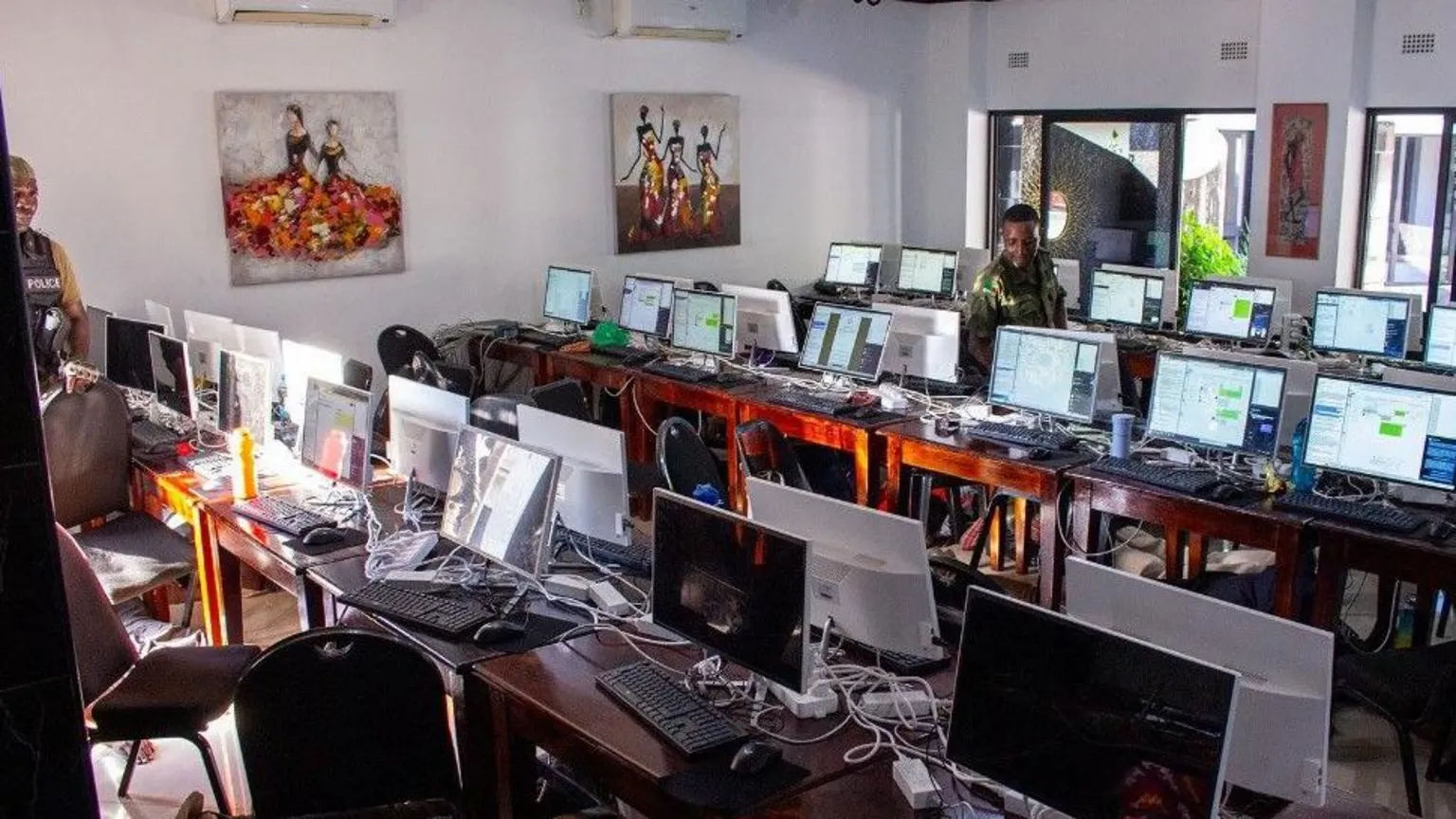Twenty-two Chinese nationals have pleaded guilty to committing cyber-related crimes in Zambia.
They are among 77 suspects who were arrested in April in connection to what authorities described as a “sophisticated internet fraud syndicate”.
The swoop on a Chinese-run company in the capital, Lusaka, followed an alarming rise in internet fraud cases in the country, targeting people in countries around the world.
The Chinese nationals are set to be sentenced on Friday, local media report.
There have been increasing cases of Zambians losing money from their mobile and bank accounts through money-laundering schemes which extend to other foreign countries, the Drug Enforcement Commission (DEC) said in April.
People in countries including Singapore, Peru, the United Arab Emirates (UAE) and others across Africa have also been targeted in the online scam, Zambian authorities said.
Dozens of young Zambians were also arrested after allegedly being recruited to be call-centre agents in the fraudulent activities, including internet fraud and online scams, the DEC said during the arrests.
After a trial lasting several weeks, the 22 Chinese nationals, including one female, pleaded guilty to three charges – computer-related misrepresentation, identity-related crimes, and illegally operating a network or service.
The 22, along with a Cameroonian national, were charged with manipulating people’s identities online with intent to scam them.
The accused hold different positions in the Chinese-run Golden Top Support Services, the company at the centre of the raid.
The company, located in Roma, an upmarket suburb of Lusaka, is yet to comment on the allegations.
Li Xianlin, believed to be the director of the company, was charged with operating the network without a licence from the Zambian authorities.
On Tuesday, the state prosecutor requested the court to include more details about the charges.
The Zambian nationals were charged in April and released on bail so they could help the authorities with their investigations.
Authorities said the Zambians involved had been tasked “with engaging in deceptive conversations with unsuspecting mobile users across various platforms such as WhatsApp, Telegram, chatrooms and others, using scripted dialogues”.
Among equipment seized were devices allowing callers to disguise their location and thousands of Sim cards.
During the raid, 11 Sim boxes were discovered – these are devices that can route calls across genuine phone networks.
More than 13,000 Sim cards, both local and foreign, were also confiscated, demonstrating “the extent of the operation’s reach,” according to the DEC.
Two firearms and about 78 rounds of ammunition were confiscated and two vehicles, belonging to a Chinese national linked to the business, were also impounded during the raid.
